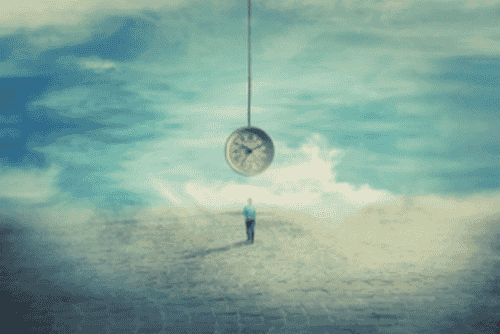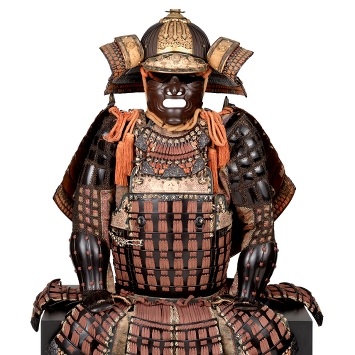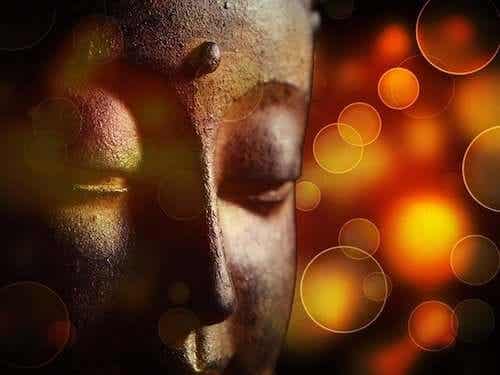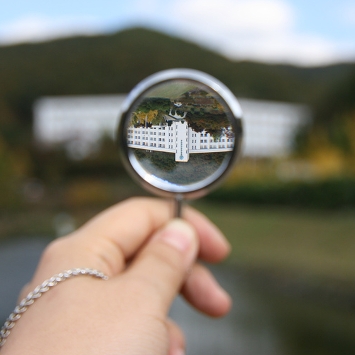What "time zone" do we live in? Those who remain immersed in the past live in sadness and resentment; however, he doesn't always notice it. Some strategies can help us open our eyes.

Written and verified by the psychologist GetPersonalGrowth.
Last update: April 13, 2022
Living in the past means not only existing in a blurred present, but also miss out on numerous opportunities.
In general, many of those emotional wounds of yesterday creep into a crack of latent pain that never heals. It is tiring to place one's attention in the here and now when the mind takes refuge in past universes.
Losses, disappointments, frustrated dreams, unforgettable loves and even childhoods crushed by trauma. Many people become true squatters of their past; a situation that fragments psychological health.
Buddhist philosophy already suggested it millennia ago: well-being is found only when one lives the present moment fully. Yet, we are rarely aware of how attached we are to our past landscape.
Sometimes every decision made or not, every fear that grips and every sensation experienced is the result of this reality. Becoming aware of this is the first step to generate changes, to free us from the old threads that deprive us of potential and well-being.
"Don't dwell in the past, don't dream the future, focus your mind on the present moment."
-Buddha–
Living in the past, is that right?
Living in the past doesn't always mean being wrapped in nostalgia. Research work from the University of California points out that nostalgia is a mildly positive emotion.
From a psychological point of view, we know that this dimension allows us to make sense of who we are and in turn builds our identity over time. Therefore, feeling nostalgic does not mean living in the past, as the latter state projects into emotional suffering.
Conversely, it is about positioning oneself in what is lost, embracing absence, touching the open wound and immersing oneself in what no longer makes sense. However, we are not always aware of this.
You can live, work and relate without understanding that much of your own present unhappiness is the costly result of not having made it past Yesterday.
1. Blame yourself for almost everything
Guilt is a perennial sense of dissatisfaction that devours and invalidates us. In general, the people who have not gotten over their past carry the constant burden of guilt and negative self-perception. Like an all-consuming black hole.
Nothing that is done will be processed in a positive way and there is also the echo of that negative and incapacitating inner dialogue that never stays silent.
2. Compare any reality with another passage (retrospective filter)
When you get to know someone new, you regret not having met them before. Following a pleasant moment, her gaze immediately leads into a past moment.
The mind passes from the past to the present like a pendulum, comparing yesterday with today, and vice versa. All this submits to a state of great psychological exhaustion.
3. Living in the past and fear of change
An inevitable sign when we live in the past is resistance to change. The psycho-emotional attachment to yesterday is so pathological that every variation is experienced as a threat.
The mere fact that something changes from day to day is experienced as a loss, a breach of their security.
Change forces us to travel across unknown terrain. However, those who have experienced traumatic events in the past do not feel prepared. They have no tools, they feel fear and a high degree of insecurity.
4. Low self-esteem
The person lives clinging to the past dimension of his inner world because he has not passed a certain event.
That wound, that latent problem, runs aground on self-esteem and boycott one's image. One does not feel at ease, but fragile, fallible and sometimes at fault. Very complex psychological realities that diminish the ability to be happy in the present.
5. Negative emotions predominate: sadness, anger and loneliness
You live in the past when you always feel sadness for what yesterday is gone. It is also common to get angry and have outbursts of anger.
Likewise, there is the feeling that no one can understand us or know our personal reality; all this generates a feeling of loneliness.
6. It is difficult to build satisfying and meaningful relationships
Those who live in the past reserve all the energies in it and look away from the here and now, where what really matters happens.
We cannot be good partners or good friends when we are prisoners of one yesterday which prevents us from loving those around us today. This leads to short-term relationships, constant scolding and inevitable loneliness.
7. Live in the past and be unhappy
Bitterness, resentment, a feeling of failure ... Living in the past means living in the open wound, in that psychological region where only resistance, adverse emotions and loneliness dwell.
Happiness does not pass through the lock of those who only look back. Nothing new arises in the unyielding mind that does not deal with what is happening here and now or looks to the future with hope.
Nothing grows in the past plot. Yesterday it no longer exists, it is no longer there, let's stop paying attention to things that have no sense or presence.


























